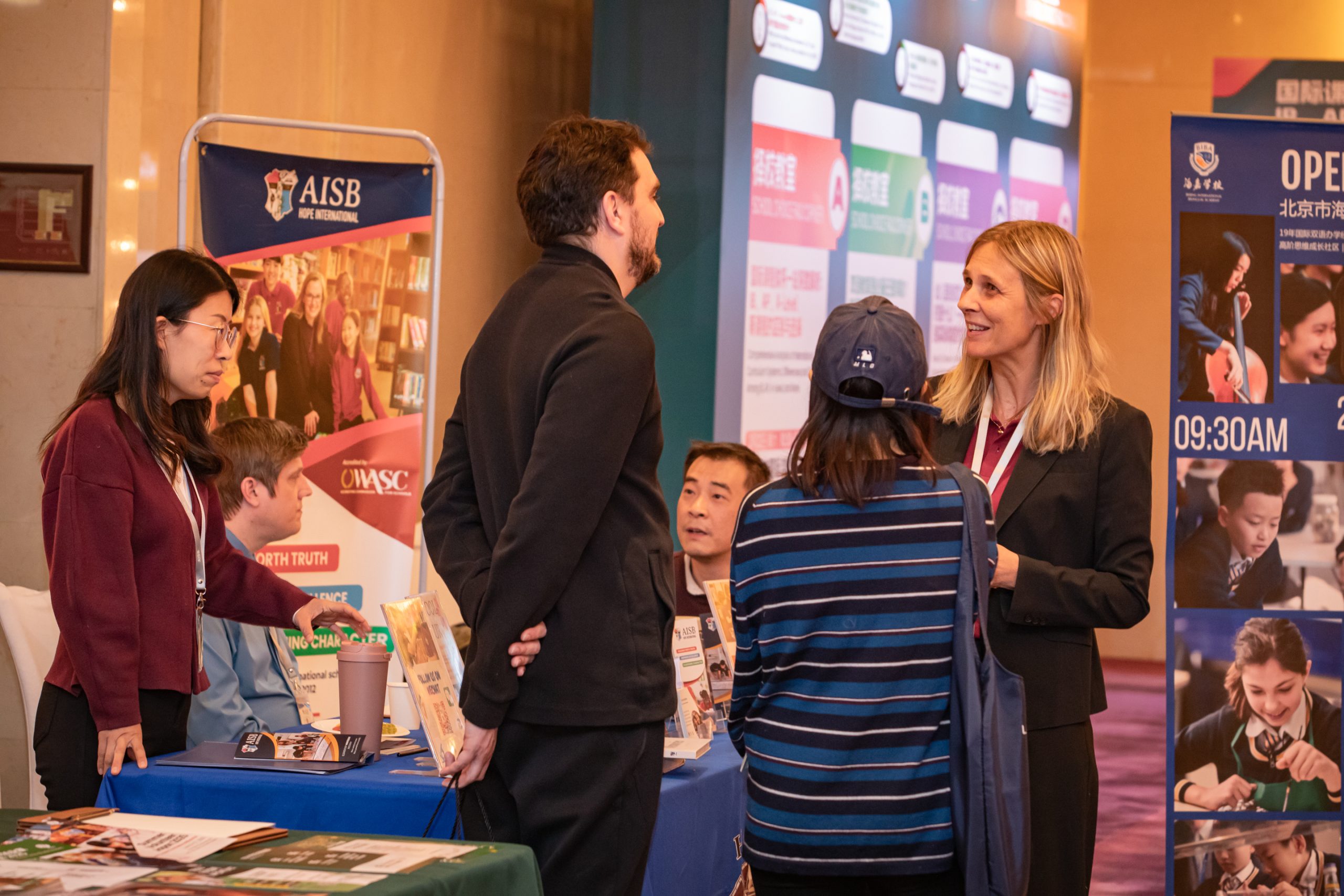I spent Saturday talking to close to a hundred parents at the Jingkids International School Expo, as well as 30 top international and international-oriented schools. There were not only long-established international schools present including Yew Chung International School (YCIS), British School of Beijing (BSB), and French International School of Beijing (LFIP), but also well-known private international-oriented schools such as Daystar Academy, Beijing International Bilingual Academy (BIBA), Beanstalk International Bilingual School (BIBS) and Beijing Xin Fuxue International Academy. Chinese and foreign parents living in Beijing came from all over the city, just to find the most suitable educational path for their children and after discussing with educators and parents alike, I noticed three trends:
 Bilingual Education
Bilingual Education
Whether expat or local, families are increasingly looking at bilingualism as a top priority. Chinese families don’t want to sacrifice native fluency, and expats don’t want to walk away from their China experience without the Mandarin language.
Chinese families: They hope their children will take an international path in the future, but they are unwilling to sacrifice Chinese. Compared with the “frenzy” of blindly pursuing an all-English environment ten years ago, today’s parents are more rational and realize that bilingual ability is the real currency for future competition.
Mixed-nationality families: Chinese is an important part of a child’s identity and must not be neglected.
All-foreign families: Surprisingly, an increasing number of foreign families want their children to receive Chinese education from an early age, and some even require Chinese to be the main language during the primary school stage! A couple from the United States and Germany bluntly said, “China’s influence in the world is growing. We need to hurry up and let our children learn Chinese well and understand Chinese culture.”
Popular schools: Schools well-known for bilingual teaching, such as YCIS, Daystar Academy, BIBA, and BIBS attracted the most parents who are concerned about bilingual education at their booths.
Price Sensitivity
At this year’s expo, tuition fees became one of the most concerning indicators for parents. With the current state of the economy, parents are shopping for deals. The first question out of many parents’ mouths was “How much,” and schools that had lower prices or discount plans attracted a lot of attention.
The French School and the Novus Academy of Beijing were popular amongst parents due to their extremely high cost-effectiveness.
The French School: As an established school for the children of foreign nationals, its tuition fees are only half of those of other international schools (about RMB 150,000 per year on average), and it can also admit non-French students. Although French is the main teaching language, after comparing tuition fees, parents say, “English can be supplemented by spending money on extracurricular classes, and learning French is an advantage!”
Novus Academy of Beijing: The tuition fee for the primary school stage is less than RMB 100,000, which parents call an “affordable price for personalized small-class education”. After the expo ended, some parents still sat in front of the booth to conduct in-depth consultations with the school’s team.
Cost-effective choices: Tsinghua International School (THIS) and Agilearning also attracted a large number of parents due to their moderate tuition fees and high-quality education.
Special Needs Education
Another trend spanning both local and international families is the need to find schools that can cater to the diverse strengths and needs of their children. One size does not fit all. Although some established international schools such as Western Academy of Beijing (WAB) and International School of Beijing (ISB) have special education resources, resources in private schools are still lacking.
A couple from South America came to the expo with four children. The youngest child has autism. They hoped to find a school that teaches in English and can also accommodate children with special needs. Eventually, with the help of the expo, they found AISB-Hope International – a small- scale international school well that’s known for its professional support for children with special needs.
With this year’s JISE behind us and the international education landscape changing, and both families and schools need to find their own positions in this transformation.
What’s your opinion? What kind of educational path would you choose for your children? Feel free to leave a message and share your views!





Images: Uni You




